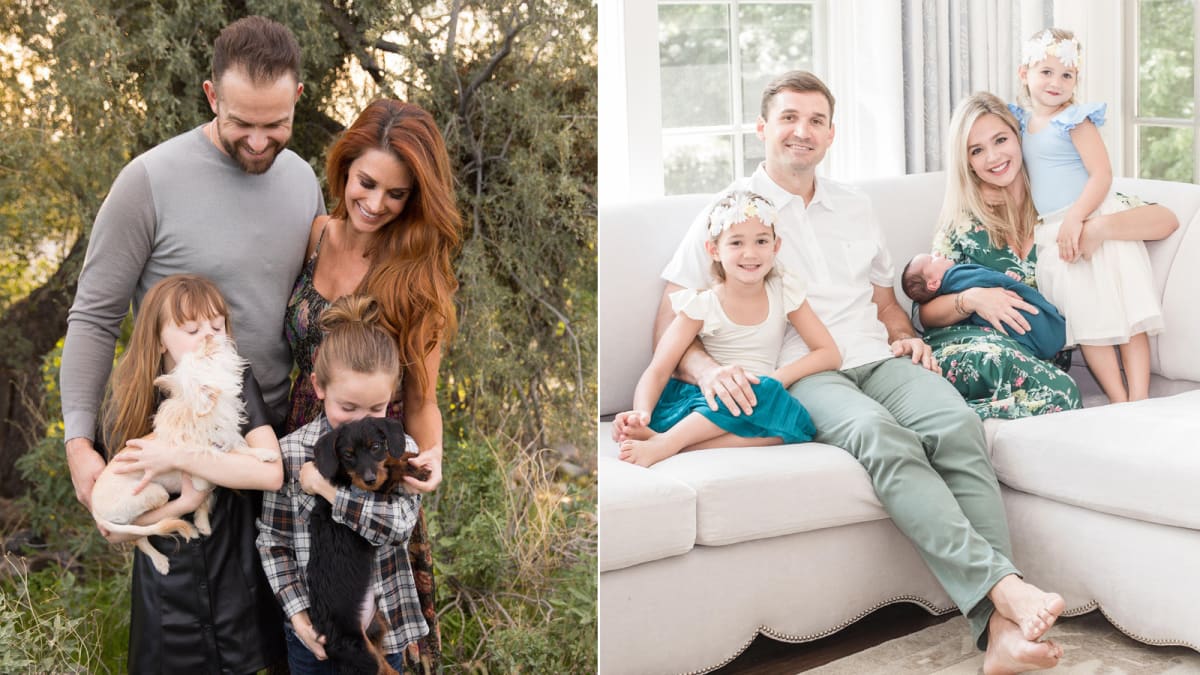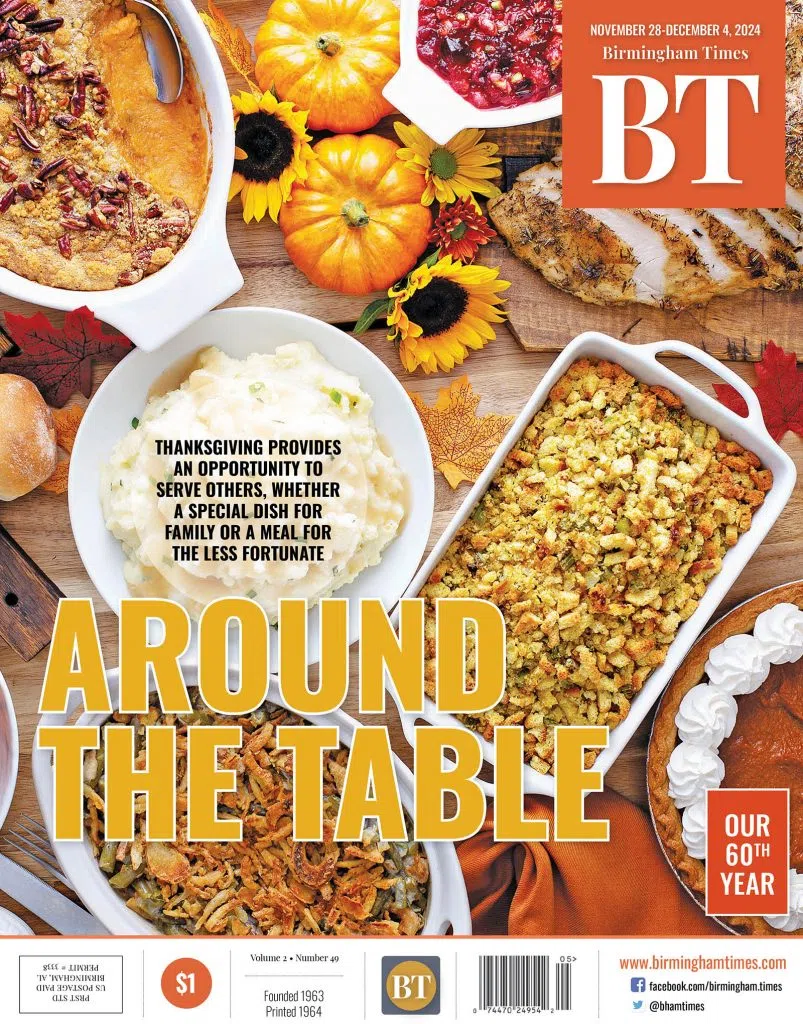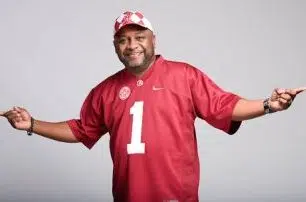With the 2020 MLB season starting during the coronavirus pandemic, players’ families are adjusting to a baseball year unlike any other.
When Lory Ankiel started Our Baseball Life in 2010, she wanted to make baseball careers a little bit easier for the wives who would come after her. Her husband, Rick, had just been traded from Kansas City to Atlanta, and as she tried to manage a surprise relocation to a new city while pregnant, she thought: There has to be a way to streamline this for other women. So she built a website, and a decade later, she’s grown it into a sprawling network of baseball spouses who share information about anything and everything.
In a pandemic-interrupted season, however, Our Baseball Life has taken on a different role—as a mutual-aid group and support circle.
“Adding all of this uncertainty on top of a lifestyle where things can already be kind of crazy,” Ankiel says. “We just figured that we needed to do something to help support in any way we could.”
Baseball’s structures have been scrambled over the last few months. In the minors, a canceled season and uncertain future mean that financial troubles abound. In the majors, playing amid a pandemic has forced all manner of adjustments. And behind almost all of these individual stories are families—often, women trying to handle the details and behind-the-scenes choices that can make baseball careers feasible.
Our Baseball Life has tried to extend a hand to as many of them as possible. For minor-league families, they’ve joined with a non-profit, More than Baseball, to organize hundreds of thousands of dollars in direct aid to those who need it. For major-league families, they’ve made their online community into a place to talk through unfamiliar choices: How do you minimize risk? Do you just live separately from your husband for the next few months? What if you’re pregnant, or if you have young kids?
“A lot of it recently has been, ‘Are you going? Are you staying home? How are you finding a house?” says Paige Murphy, the group’s managing director, and wife of retired infielder Donnie. “I think just being able to bounce off each other what their teams are doing, what some of this might look like for them, is so useful as they’re all trying to figure out this new normal.”
Due to the nature of the schedule, MLB families are often used to lengthy stretches of time apart. But the pandemic has changed the nature of what that means. For the 60-game season, players will not be in a “bubble” or based in hub cities. Instead, they’ll be trusted to minimize their exposure to the virus while playing in their usual ballparks, able to make their own choices around where to stay. If their families live with them, they won’t be able to join them at the ballpark as usual, and they’ll have to be painstakingly careful about health and safety. But if they live separately, they could go months without seeing each other.
“These are real people with families,” says Murphy. “They don’t exist just to entertain the masses.”
The particulars of each choice have been different, but the space to talk it through with one another and share their experiences have been vital. Here are the stories of three of them: Our Baseball Life members who chose, respectively, to spend the season as a family, to ride it out apart, and to sit out the whole thing.
The Decision to Stick Together
When spring training closed down on March 12, Kaycee and Eric Sogard’s hands were full: Their son, Rye, had been born on March 11.
“It was very weird timing,” says Kaycee. “Ultimately, kind of good for us, but definitely weird.”
In the first few weeks of the shutdown, they were able to focus just on staying home with the baby. The couple’s offseason home is in Arizona, so they had not needed to travel for spring training, which meant that there was no decision to be made about where to go immediately. As time wore on, however, they knew that a different choice was ahead of them: Were they going to be able to spend the season together as a family?
Eric, a veteran infielder, signed with the Brewers last December. Over the winter, the family had secured a lease on a house in Milwaukee, and they’d been paying the rent from Arizona since March 1. But they weren’t sure if it still made sense for them to move in there together as originally planned. Rye is their fifth child; uprooting them all and staying safe through the chaos of a pandemic-shortened season was going to be challenging.
“I think with any kids—let alone five with a newborn—it’s definitely something to weigh out and work through together,” Kaycee says.
The hiatus had offered them lots of time together that they hadn’t expected to have. Eric would have otherwise missed much of the first few months of Rye’s life, and instead, they were able to spend it as a family. Now, the idea of giving up that time entirely just seemed like too much. With a baby, two toddlers, and two school-age kids, each day together was precious.
With their rental house ready, Kaycee and Eric decided that they would all go to Milwaukee, with as many precautions as possible to limit any chance of infection once they were there.
Eric left for Milwaukee on a Tuesday, a few days before the start of the team’s Summer Camp. Kaycee took some time to finish packing up before flying out with the kids that Thursday. (“It’s definitely hard to get a family ready to move when you don’t know if you’ll be leaving in two months or two days,” she laughs.) The season will particularly be an adjustment for the oldest kids, 6-year-old Saydee and 4-year-old Knix, who typically love going to the ballpark and watching their dad play. But they’ve already done Zoom sessions on the Jumbotron to watch him at practice, and they’re preparing to find other creative ways to root him on from home.
“We’re just glad that we’re all together,” Kaycee says, “and that baseball is back.”
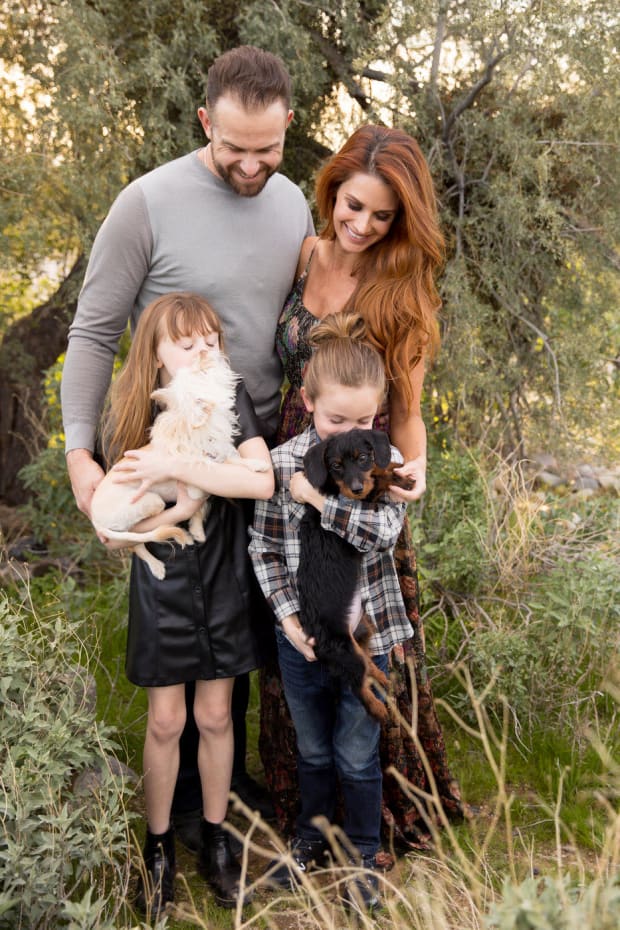
The Decision to Stay Apart
The Longoria family also stayed in Arizona when spring training shut down: It’s the offseason home for Giants third baseman Evan, wife Jaime, and their 7-year-old daughter and 5-year-old son.
Evan built a ropes course for the kids in the backyard and installed a Slip ‘n’ Slide. He took responsibility for dinner duty—Burger Night Fridays and Taco Tuesdays, which grew “increasingly elaborate” as the weeks wore on, Jaime says. They went on long bike rides and family-friendly hikes. He’s always been “very hands-on in the offseason,” but now, for the first time, he could stretch that out: “They were happy as could be,” she reflects. When they had to decide what to do next, however, it became clear that there was just one choice that made sense for their family.
They’d originally lined up a rental for the season in San Francisco, but amid the pandemic, they’d allowed the owner to list it back on the market. If Evan went up by himself, he could just stay in a hotel. If they went as a family? They’d probably need to scramble for a new place. That would mean saying goodbye to the backyard, with its ropes course and Slip ‘n’ Slide, and the little bit of the structure that the kids had carved out in their new normal.
“I wouldn’t be happy, and he wouldn’t be happy with all of us just sitting there all day waiting for him to get back from the ballpark,” Jaime says. “It wasn’t that hard, honestly, after they decided that they really were going to start, and he had to be there on a week’s notice. We just said, ‘you know what, you’re going to live in a hotel room, and we’re going to make it work.’”
A few weeks later, Evan is in the hotel in San Francisco (no in-room dining options—pandemic rules—so every dinner comes from Postmates), and Jaime and the children are still in Arizona. It’s different. But, for now, it feels like the best choice.
“This will be the longest he’s ever gone without seeing the kids,” she says. “But we’re just going to see if everything gets to Opening Day, and then we’ll take it from there.”
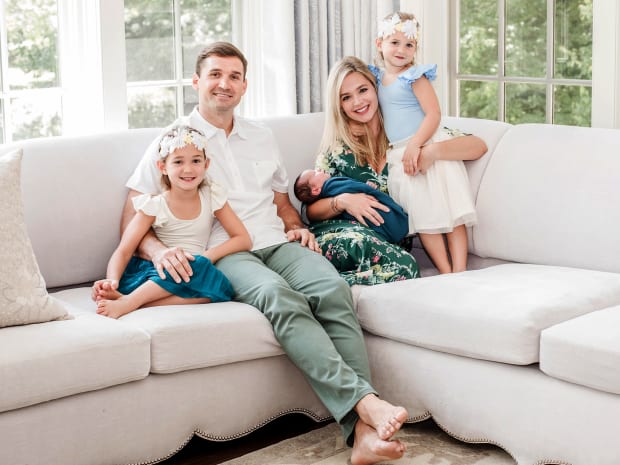
The Decision Not to Play
Heather Zimmerman and her husband, Nationals first baseman Ryan, had their first conversation about potentially sitting out the season early on. Heather was pregnant with their third child, due at the end of May, and they weren’t sure about what it would mean either to temporarily separate or to try to play through it.
“At first, we wondered if maybe we wouldn’t even have to make the decision,” Heather recalls of watching the pandemic threaten the chances of any season at all. “But once we realized that baseball was going to start up again, it was just—let’s get this baby born and see where we are after that.”
Henry Zimmerman was born on May 31. At the time, rumors were swirling that players might have to report to camp in mid-June, and Ryan and Heather wondered how to do that safely with a newborn: Would he spend the whole time living in a hotel nearby? Their full-time home is just outside D.C., where Ryan has spent his whole career with the Nationals, and so there was no offseason house to retreat to. Add in that his mother suffers from multiple sclerosis—which meant that playing through the season could mean separating from her for months with a new grand-baby—and that his veteran status offered the financial security to step away, and they knew what to do.
“He made his final decision pretty last-minute,” Heather says. “But there were a lot of factors weighing on us, and on him, that made us realize that there was really just the one option for us.”
The decision not to play means that Ryan’s been able to spend plenty of time bonding with Henry in the first few months of his life. It’s felt strange to watch his teammates head back to the field without him. But it’s been worth it.
“I’m not going to lie—it’s really strange. I miss baseball. He misses baseball. I’ve never known him not playing baseball, you know?” she says. “But it’s just been really nice to become this new sort of family unit that we’ve never been before.”
So far, they’ve been kept busy with the children, but they’re looking forward to being able to add in some baseball soon—from a new perspective.
“We’re excited to watch some baseball from home,” Heather says. “As weird as that will be.”


